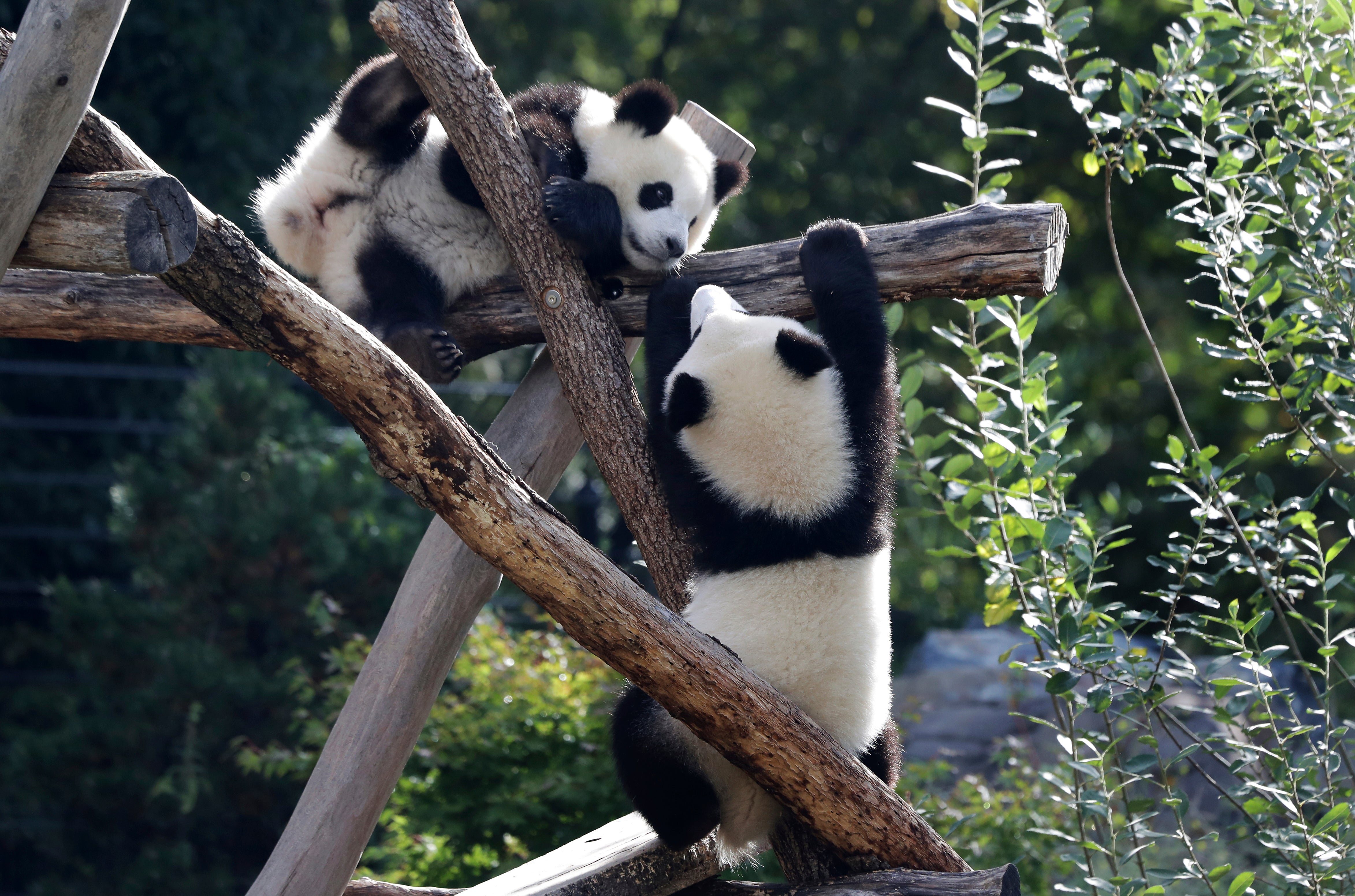Berlin Zoo sends the first giant pandas born in Germany to China
The Berlin Zoo has sent the first giant pandas born in Germany to China, dispatching the four-year-olds on a journey that was delayed by the COVID-19 pandemic

Your support helps us to tell the story
From reproductive rights to climate change to Big Tech, The Independent is on the ground when the story is developing. Whether it's investigating the financials of Elon Musk's pro-Trump PAC or producing our latest documentary, 'The A Word', which shines a light on the American women fighting for reproductive rights, we know how important it is to parse out the facts from the messaging.
At such a critical moment in US history, we need reporters on the ground. Your donation allows us to keep sending journalists to speak to both sides of the story.
The Independent is trusted by Americans across the entire political spectrum. And unlike many other quality news outlets, we choose not to lock Americans out of our reporting and analysis with paywalls. We believe quality journalism should be available to everyone, paid for by those who can afford it.
Your support makes all the difference.The Berlin Zoo has sent the first giant pandas born in Germany to China, dispatching the 4-year-olds on a journey that was delayed by the COVID-19 pandemic.
Pit and Paule, who also are known by the Chinese names Meng Xiang und Meng Yuan, departed from Berlin on Saturday aboard an Air China cargo jet and have now arrived at their new home, the Chengdu Panda Base, the zoo said Monday.
“Pit and Paule coped well with the flight," said Andreas Pauly, the zoo's head of animal health, who accompanied the panda brothers to China. "When the bamboo is right, pandas are usually very relaxed. It was the same on the flight.”
The pair will now spend 30 days in quarantine at the panda base.
The young pandas were a star attraction in Berlin since their birth in 2019, but their return to China was contractually agreed from the start.
While China gifted friendly nations with its unofficial mascot for decades as part of a policy of “panda diplomacy,″ the country now loans pandas to zoos on commercial terms.
Pit and Paule’s parents, Jiao Qing and Meng Meng, arrived in Berlin in 2017. They are expected to remain in the German capital for another nine years.
When the young pandas turned 4 in August, the zoo said the animals would soon travel to China — a trip that it said generally happens when the animals are 2 or 3 but was delayed by the pandemic.
Giant pandas have difficulty breeding, and births are particularly welcomed. There are about 1,800 pandas living in the wild in China and a few hundred in captivity worldwide.